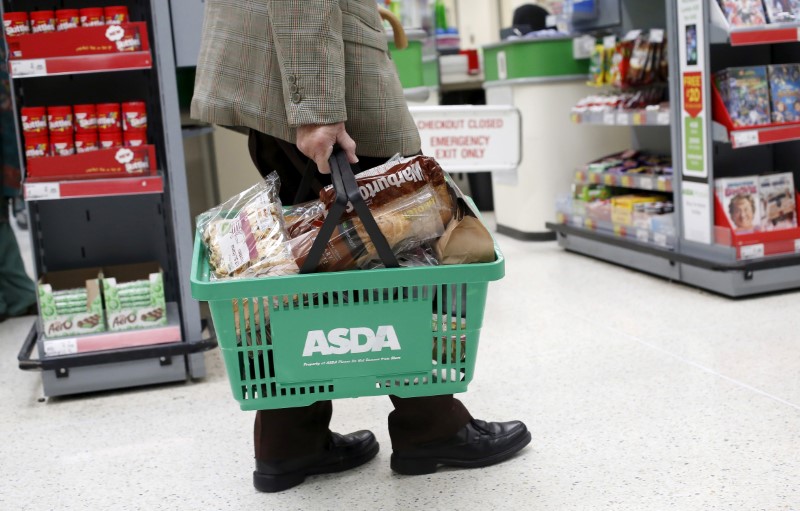By Andy Bruce and William Schomberg
LONDON (Reuters) - British inflation slipped unexpectedly last month, but Bank of England Governor Mark Carney warned higher prices are on the way, with cost pressures in factories already ballooning thanks to sterling's Brexit slump.
Annual consumer price inflation weakened to 0.9 percent in October from 1.0 percent in September. Economists taking part in a Reuters poll had expected inflation to rise to 1.1 percent.
But Carney pointed to strong factory-price inflation that probably marks the "first stage" of the impact of the decline in sterling, which is down around 20 percent against the dollar since Britain's June 23 vote to leave the European Union.
The cost of materials and oil for factories showed the biggest monthly jump since records started in 1996, leaping by 4.6 percent in October alone. And prices for goods leaving factories rose by 2.1 percent on the year, the biggest increase since April 2012.
While the Office for National Statistics said it had no clear evidence that sterling's plunge had raised prices on the high street, Carney said that was on it way.
"The pass-through from a 20 percent fall in the trade-weighted level of sterling is going to come," he told lawmakers.
Carney said a pick-up in inflation expectations in Britain was also being driven by a better outlook for the economy.
The BoE forecasts that inflation will rise to about 2.7 percent around this time next year.
Inflation expectations around the world have also surged in the last week, driven by U.S. President-elect Donald Trump's plans to increase government spending in the world's biggest economy.
Sterling and British government bond yields fell after Tuesday's data.
Wages are expected to grow more slowly than inflation next year, meaning many households are likely to face a squeeze in their living standards.
Carney has said the central bank could tolerate some overshoot against its inflation target, to help accommodate economic growth and employment.

But earlier this month the BoE kept interest rates on hold, despite having signaled a cut only months earlier.
An ONS measure of core consumer price inflation - which strips out changes in the price of energy, food, alcohol and tobacco - slipped to 1.2 percent in October from 1.5 percent. Economists had expected a smaller decline, to 1.4 percent.
Clothing prices and university tuition fees pushed down on consumer price inflation last month, but prices paid by consumers for fuels and lubricants rose at the fastest pace since April 2012.